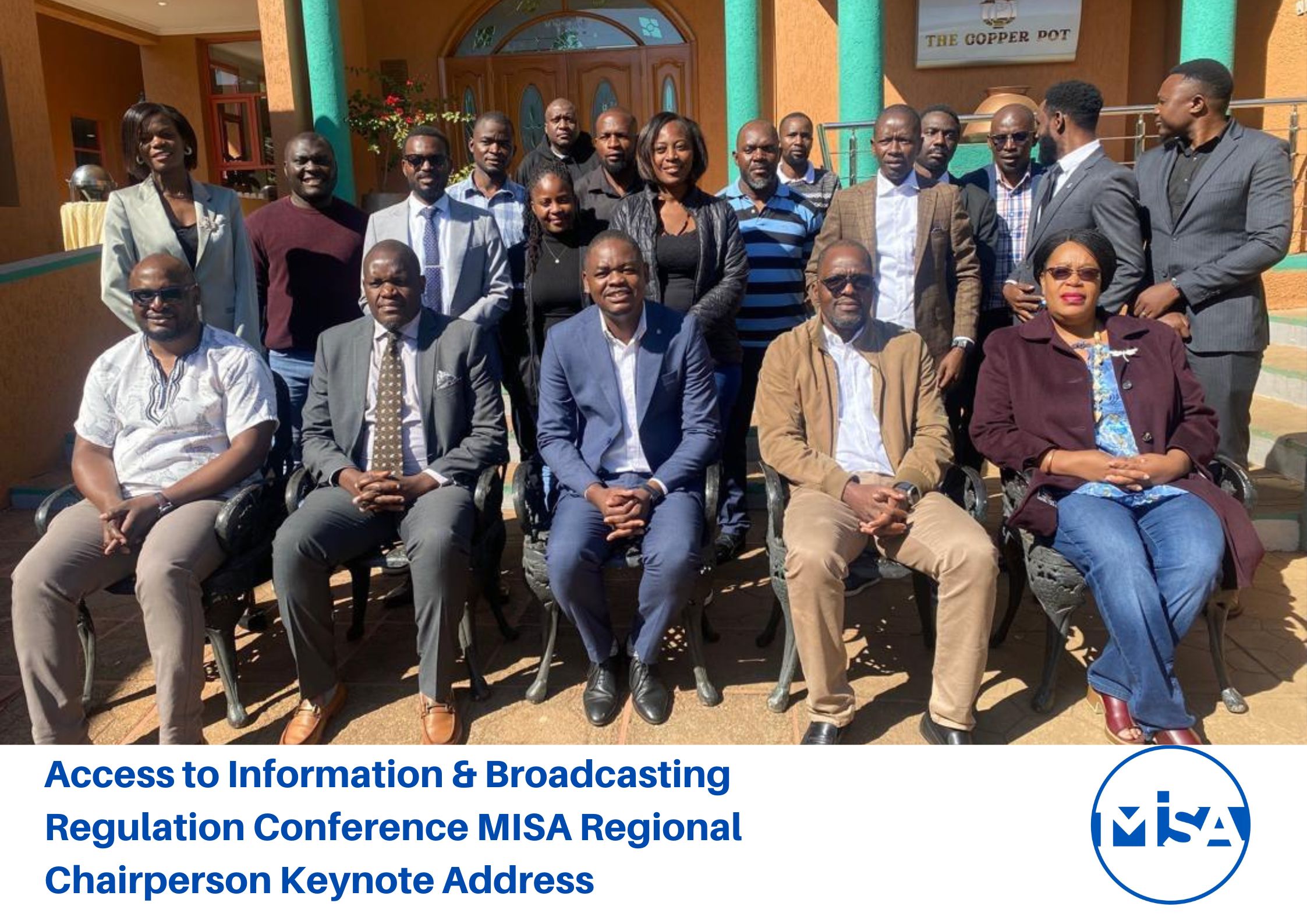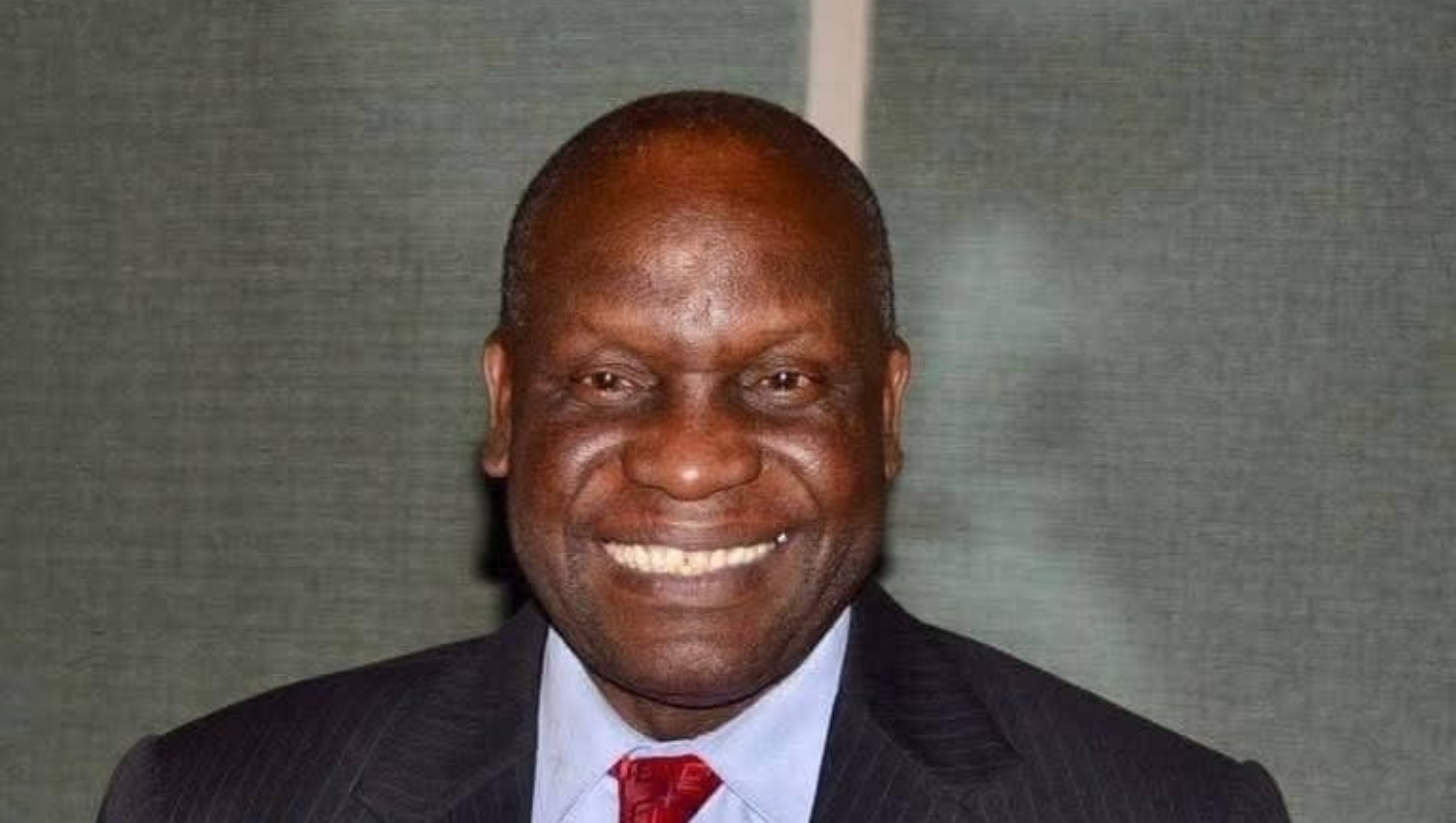ACCESS TO INFORMATION & BROADCASTING REGULATION CONFERENCE
11 July 2025
KEYNOTE ADDRESS BY MISA REGIONAL CHAIRPERSON, MR JEREMIAS LANGA
Lilongwe, Malawi
Ladies and gentlemen, it is with great pleasure that I join you here in the heart of Africa, Malawi, for this strategically important conference on Access to Information (ATI) and broadcasting reforms as you head towards your 2026 general elections in the next two months.
The two strategic issues of broadcasting and ATI are crucial for informed decisions and choices by citizens, especially at this critical moment ahead of Malawi’s elections; hence, this timely conference is organised by MISA Malawi, in collaboration with the MISA Regional Office and BBC Media Action.
Reforms of these two interconnected issues will drive Malawi towards sustainable decision-making and reinforce the core values of accountability and transparency, thereby strengthening the social contract between the governing and the governed.
The people of Malawi, the hand of history is upon your shoulders as you seek to rebuild your regulatory frameworks ahead of your elections. The envisaged rebirth, I must emphasise, is equally ours— the people of Southern Africa and Africa at large— as we learn lessons and share experiences to shape our collective future.
I must emphasise that policies and regulations should respond to our objective reality rather than perceptions of reality.
Consequently, as we meet at this critical juncture, we do appreciate that the people of Malawi have high expectations that we will apply ourselves with our utmost rigour towards shaping the policies that will profoundly impact their lives.
We meet, therefore, as catalysts to change the circumstances and conditions under which people share and make informed choices. The task before us, therefore, requires that, among other things, we think independently and with open minds; study and understand the challenges faced by the people of Malawi regarding access to information and broadcasting services, and that we do so very openly.
It is understood that the people of Africa, in general, and Malawi, in particular, yearn for a better life. At MISA, through our ongoing research, we have concluded that access to information and broadcasting services contributes to a more open, transparent, accountable, and responsive society based on informed choices.
Your presence here demonstrates that we are committed to advancing the race of the envisaged re-birth, by enabling the people of Malawi to make informed choices on issues that affect their lives. Therefore, this process is not about ticking the boxes; but a firm and resolute eexercise in reaffirming the central role of citizens as agents in shaping their country’s future.
Ladies and gentlemen, the MISA Regional Office was established 34 years ago in pursuit of the Windhoek Declaration on Independent and Diverse Media, adopted in 1991. In 2021, the Windhoek Declaration was reviewed and transitioned into its successor declaration, which the United Nations adopted through the UNESCO General Assembly as the Windhoek +30 Declaration – Information as a Public Good.
I refer to this historic foundational instrument as it is strategic in shaping the essence of our legislative and policy frameworks on the continent.
Indeed, I repeat that in our efforts to develop conducive policy and legal frameworks, we must remain aware that information is and shall remain a public good that enables the enjoyment of all our inalienable rights.
The enjoyment of broadcasting services, which are regulated to ensure the equitable distribution of limited resources, should reach all segments of society in accordance with the African Charter on Broadcasting of 2001.
The Charter stresses and advocates for the establishment and reinforcement of a three-tier broadcasting system: public, commercial, and community broadcasting in Africa.
These, among others, as normative frameworks, should inspire our reform agenda and reconfigure the expression of legislative architecture.
As we engage in detailed conversations, let us remain alert to the immense responsibilities on our shoulders, imposed by the unyielding spirit of the peoples of Africa and Malawi. We must also challenge ourselves collectively to act in ways that do not betray or disappoint societal expectations.
It is not my intention to pre-empt the competent facilitators that will steer today’s proceedings.
Suffice it to say, we have the capable minds and brains that will galvanise and provide the desired hope and aspirations of the people of Malawi, the region, and the continent at large.
Through these deliberations, we must resist the temptation to remain in the past, but should be more determined than ever before to overcome the forces that stand in the way of democratising access to information and reforming broadcasting laws and behaviours.









